|
|

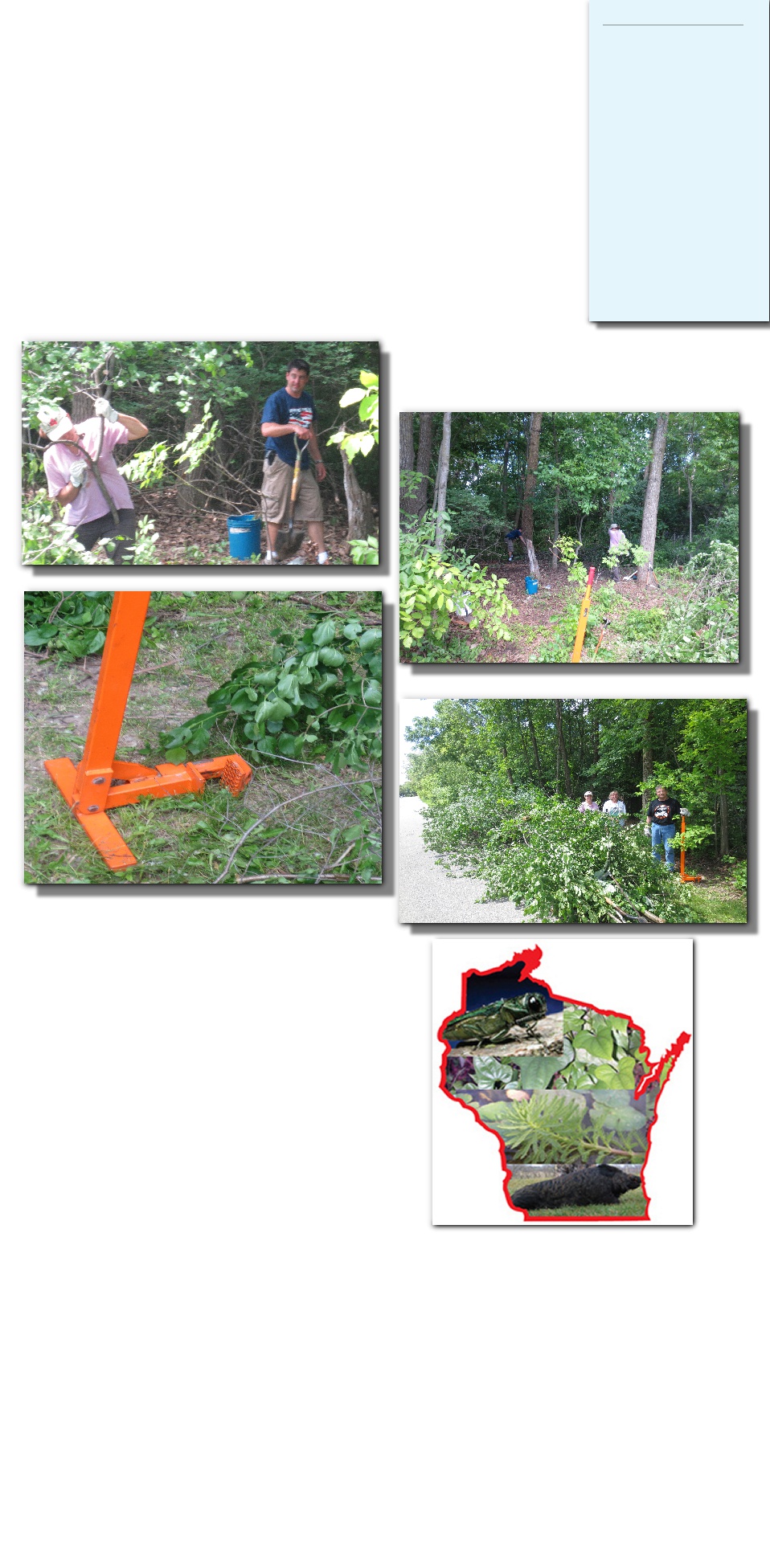



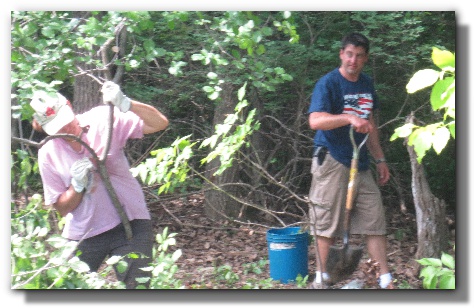
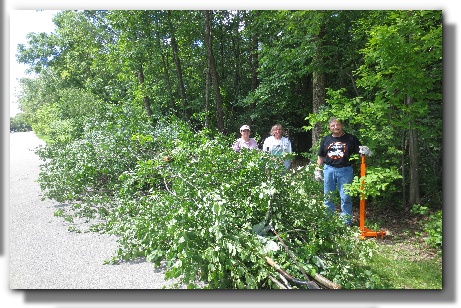
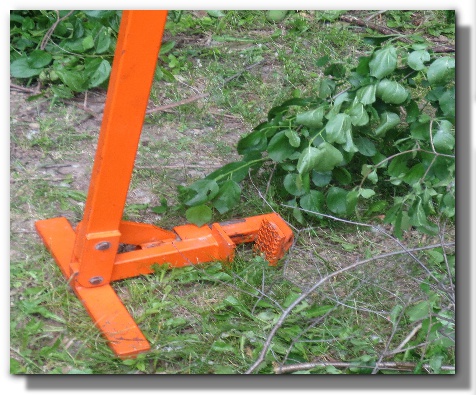
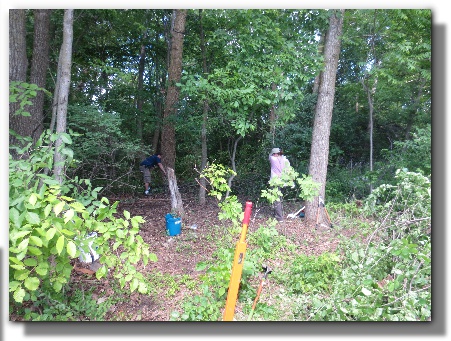
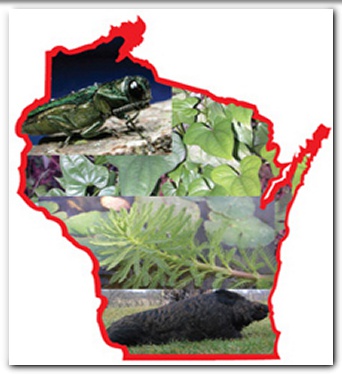
Hales Corners Environmental Committee
Invasive Species - Identity and Control
Links:
Humans move organisms around all the time. Sometimes when we bring a non-native species of
plant or animal into a new area, the species will take over and spread rapidly and widely
throughout the area. When this happens, the spread can cause major harm to the native
ecosystem or humans. When non-native plants, animals, or pathogens rapidly takes over a new
location and alter the ecosystem, we consider them invasive species.
In 2009 Wisconsin established a comprehensive invasive species rule, ch. NR 40, Wis. Adm. Code, to regulate some of the most threatening invasive species. The Department's Invasive Species Team has worked with businesses and other partners to ensure voluntary compliance with the rule when feasible and stepped up enforcement when appropriate. As of June 30, 2013 a revised invasive species list has been recommended by the Council.
Locally, some of the Environmental Committee members teamed up recently to experience just what is needed to control an invasive. Our target was the Common and Glossy Buckthorn plants that have established a stronge hold over the parcel south of Schoetz Park. With the help of our Weed Wrenches, we were able to extract a considerable amount of plants from the area for disposal.
In 2009 Wisconsin established a comprehensive invasive species rule, ch. NR 40, Wis. Adm. Code, to regulate some of the most threatening invasive species. The Department's Invasive Species Team has worked with businesses and other partners to ensure voluntary compliance with the rule when feasible and stepped up enforcement when appropriate. As of June 30, 2013 a revised invasive species list has been recommended by the Council.
Locally, some of the Environmental Committee members teamed up recently to experience just what is needed to control an invasive. Our target was the Common and Glossy Buckthorn plants that have established a stronge hold over the parcel south of Schoetz Park. With the help of our Weed Wrenches, we were able to extract a considerable amount of plants from the area for disposal.
What are Invasives?
The Weed Wrench, pictured above, is a device specially
designed to grab hold of the stalk of the invasive (buckthorn in
this case) and extract the entire root from the ground with the
help of a considerable amount of leverage.
The Weed Wrenck is available on-loan from the Committee to members of the village who would like to take control of their own invasive problem. Make a reservation on the "CONTACT " page of this site
The Weed Wrenck is available on-loan from the Committee to members of the village who would like to take control of their own invasive problem. Make a reservation on the "CONTACT " page of this site
A Field Guide to Invasive
Species In Wisconsin
Regulated Invasive Plants In Wisconsin
Galic Mustard Id Card
Buckthorn Id Card
Regulated Invasive Plants In Wisconsin
Galic Mustard Id Card
Buckthorn Id Card
Wisconsin Statute Section 23.22 (1) (c) officially
defines invasive species as "nonindigenous species
whose introduction causes or is likely to cause
economic or environmental harm or harm to human
health."



